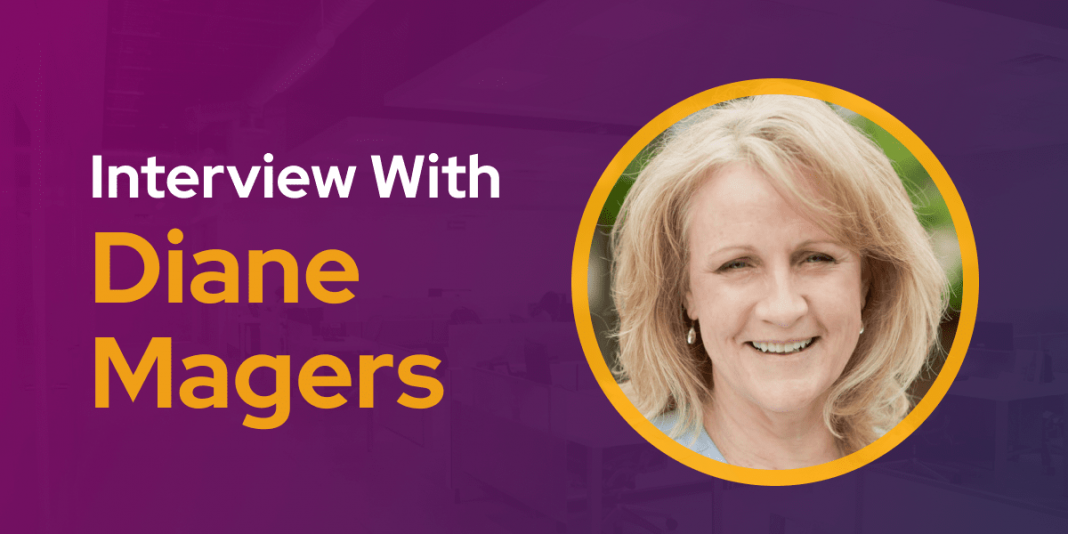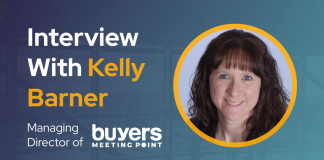Hi Diane, tell us about yourself and your background and how you got to the CX space?
I started my career as a clinical psychologist, so from an early start, I was engaged in human behavior and emotional discipline. It has helped me tremendously in my role as an experienced professional. My career evolution in the experience management space was really serendipitous. I was taking a break in my work as a psychologist. I began working with a start-up that became very successful and a huge learning opportunity about the intricacies of how brands can and should work. The most important learnings were from building the brand from the ground up, with intention and gaining experience in all aspects of the business, including operations, sales, marketing, culture, etc.
When my experience career began in the early nineties, Customer Experience was in its infancy. At my first real role in CX, my inspiration was the CEO of that company (a large Fortune 500 company), who believed in creating experiences to drive success for our customers and that our business would thrive as a result. With that approach and our results, I was hooked! I have work in and led large organizations like Sysco and AT&T Business, helping build the discipline of experience management. When I was getting started, there wasn’t any formal training or education, so I connected with brands where other leaders were creating this experience approach too (my first CX community!) and built frameworks and activities that helped form our approach and work to engrain this discipline in the organization.
In my advisory, coaching, and consulting services now, I thoroughly enjoy serving other brands and working with passionate, experience leaders. I have been blessed to have worked alongside many small and large brands as they create differentiation through experiences. It’s thrilling to me to be able to share perspectives, tools, and frameworks so they can learn and make progress in building their discipline quickly and effectively.
In the 3 years as CEO of the CXPA, I was thrilled to be able to meet hundreds of practitioners who create and grow this dynamic community that supports each other, helps each other grow, and continually has a huge impact on the direction and success of our profession. I am now coaching and advising other professionals, building educational resources and tools, and mentoring others. My passion and excitement hasn’t changed. It is a career that I have loved, and find the work extremely rewarding.
Online commerce was booming in 2020, and so did consumer reviews. How can brands better utilize this data to improve their customers’ experience?
Online reviews are a symbol of what customers are saying about you to their friends and family. So, it’s critically important to know how these reviews create perceptions of your brand to others through sharing either online or in person. The key element I have learned from social media is a treasure of information that points to issues in the systems, people, process, or technology. It is a diagnostic tool that helps us solve that particular person’s issue (if we can) or helps identify what needs to be fixed to remove the issue that caused the problem in the first place. This information can be used just like any other feedback – whether it’s a call to the care center, a discussion with the salesperson, a business review, web/app behavior, or social media. We find that the customer voice (which I call customer intelligence, both what they say and their behavior through data) helps us to create a picture of all of the things that customers are saying about us. And it can be used as a part of the analysis that we do in order to better understand the why behind their behavior.
With the proliferation of information and data about customers’ behavior, it is critically important that we continue to include the voice – the raw voice in the review world and human conversation – of what customers think and feel about our brand. It is also a beginning of a conversation strategy. Rather than just listening and acting online reviews, they also provide the opportunity for you to have a conversation with customers to engage and demonstrate to those reading their reviews that the organization is listening and taking the information to make changes to systems, processes, or other opportunities that are presenting themselves in their reviews. So, for me, it is a rich data source that is an important part of how consumers tell us about their experience. And don’t forget about Glass Door and the plethora of other social media opportunities to understand the brand’s internal perception.
Online reviews or sharing are really a social engagement activity that enhances our understanding of the experiences and provides us a way to understand the opportunities and create ways to resolve issues.
In your POV – What is the ultimate checklist for a good customer experience strategy?
Here are a few of the key elements on my checklist:
- Compelling human stories. This is what our discipline is all about, so your strategy should include the why and how you will impact the lives of your consumers/customers, employees, partners, and everybody else in the ecosystem.
- A clearly defined cascade from the brand strategy. It must support the brand strategy and define how the customer should experience the brand-defining the direction and in result of the desired future experience.
- Specific goals, outcomes, and ROI. Like any good strategy in an organization, it must tie to the strategic goals directions, an outcome the brand is trying to achieve. Well, some may say this is probably a metrics core like Net Promoter or customer effort; it is imperative that you are customer experience strategy includes the financial and value outcomes for both the brand as well as your customers. What will you be providing as value to your customer?
- How you will develop experience as an organizational capability and competency. It includes a definition of what you are trying to create within the organization. This discipline is about creating new things: ways of working, new skill sets, how the brand interacts internally – a detailed plan for where and how the discipline will change the way the organization thinks and works.
- A clear change management plan. Who, why, what, and where across all of the disciplines within the organization as well as the organization itself such as processes communications, culture, leadership capabilities, and the multitude of activities which drive and reflect the changes the organization should make and how you will support and inspire those changes?
- Details and Ideas. Include a defined plan for understanding and defining the very specific activities you are going to undertake, the effort for those activities, an estimated investment, and return on those activities. This includes both projects you may undertake that you anticipate are coming, or you will discover and for those activities which are considered enablers (developing skill sets, collecting and analytics of customer intelligence, journey management, and analytics. And also use the opportunity to create innovation, ideas, dynamic thinking and introduce “good trouble” into the organization.
How much has the role of customer experience changed in the social distancing era – what role digital transformation has in this crisis?
We had a specific opportunity to shift organizations, many brands have begun to understand their capacity for change, transformation, and the importance of listening to customers. So, while it was a head downs for some time, we must now understand and respond in a very different way to customers because our lives and perceptions have changed (even more accelerated than they were before). We are now seeing that experience management (managing the experience of everyone in the organizational ecosystem, including employees) has risen to the top of the strategic priorities. It has – and should – accelerate the understanding and adoption of the critical impact of our discipline. Any organization that does not understand how experience plays into formulating the future is at peril. So, while organizations are looking in the mirror about how they should change, they should also orchestrate a retrospection on what was learned during this time, how to move forward, and what should be different in the future.
And while looking back, they should also be looking forward at the future of experiences. This was a global social issue, and there are many other imperatives that require our attention, not just commercial, but also the climate crisis, world hunger, racial tensions, and many others. Brands must succeed in customers and employees’ minds by incorporating how they will focus and act on giving back, creating sustainability, and being human above all if they are to be considered part of our lives. One indication of this is a recent trend that we see in organizations hiring psychologists, anthropologists, sociologists, and neuroscientists while also building emotionally intelligent leaders and teams that will address these human elements in creating the future.
What was the biggest lesson you learned in 2020?
Patience. But several lessons for brands that should shake them to their core:
- Brands have to be human. Trust, transparency, and understanding needs are the basis for relationships.
- Understanding and being where customers are and how they need you to change.
- Knowing when and where digital and human touch are needed and wanted.
- We are more prepared for new challenges, but we need to instill the capability to continually evolve at a rapid pace.
- Expanded knowledge in experience management and future thinking and actionability are two ‘must haves’ to continually evolve.
- Being digital is now table stakes – we have taken care of the functional needs so that human-based innovation will become a focus.
- Cooperative, creative communities will require brands to work differently around human lives. Human will lead change, not brands. Their position will be as enablers of human vision.
- The pendulum will swing – customers will continue to use digital channels, but they will seek our personal and engaging interactions that help them gain more personal and professional growth. I like to think about the movie Wally….when everything is automated, we will realize we will have different needs in learning, education, engagement, personal and professional connections, and growth.
2020 was the year of webinars and online events; what was your favorite one?
I’m going to say it probably wasn’t an event, and there were a lot of good ones with phenomenal content. I believe my favorite part of the year was watching experience management professionals connect at such a rapid and deeper level as brands demanded accelerated understanding, learning, and application of our profession. I remember several events where C-Suite representatives we’re talking about the importance of the human elements, the shift in their ways of working, and the importance of future planned actions. Changing the way their organizations would thin, collaborate, innovate, and continually evolve. That was probably the most exciting part of those conversations. It was hearing them say the same things that we as experienced professionals have been saying and doing for years.
It looks like working from home is going to stay with us for the foreseeable future. How should Executives gear up to the changing times?
The key imperative here is employee experience and engagement. If you think about the discipline of customer experience, it is about understanding, listening, defining and designing future current and future experiences, measuring and optimizing the engagement of humans with the brand. That applies two employees as well, so this discipline that we have applied to customers will also need to be applied to employees to understand and design their experiences and engagement, acquire and retain the right talent, and help achieve the extraordinary pace of change by enabling their growth.
Last but not least, what is your favorite CX metric?
ROX. Return on experience. How customers, employees, and partners can gain value in their lives from the interactions they have with brands (think about the value of brands that save you time, effort, and headaches). Not just financial value but truly gaining a place in their lives and what they, directly and indirectly, get from your brand as they partner with you.






